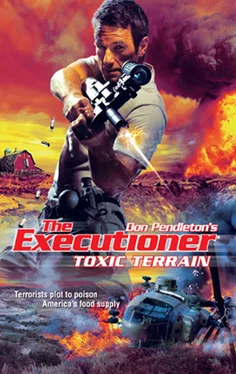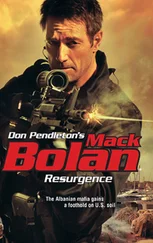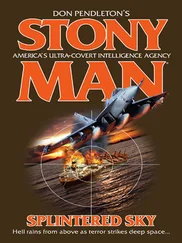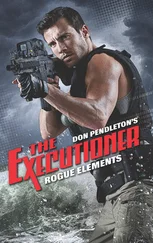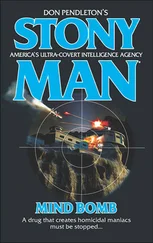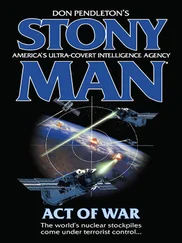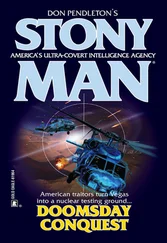Chen had spent much time with Governor Chauvin, and he wasn’t convinced the governor would have spurned Ag Con’s financial resources even if he had known the corporation’s real motive, which was nothing less than the complete destabilization of the U.S. economy. Chauvin most likely would win his seat in the U.S. Senate, but by the time that occurred, the Senate would not have a stable civilization to govern. Chen wasn’t sure that Chauvin possessed the intellectual tools to comprehend Ag Con’s plans even if he knew of them. If their plans were successful—when, not if, Chen reminded himself—the United States would devolve into societal chaos that would make countries like Somalia and Haiti seem stable.
Regardless of whether or not he had the intelligence to comprehend such possibilities, Chauvin had effectively removed the state police from the equation. That left the Bureau of Criminal Investigation, which answered not to Chauvin but to North Dakota’s attorney general, Jack Pullman. They were even less a threat than the highway patrol because Gould had video footage of Pullman having sex with a prostitute. When confronted with evidence of his illicit activity, Pullman had been willing to make any compromise in order to keep his secret safe.
When it came to doing business in North Dakota, Ag Con was above the law, meaning that the intruder killing his men from atop the butte was something other than official. Most likely it had something to do with the abduction of the extension agent and the veterinarian.
Chen watched Liang and a small patrol of his men race away from the compound on foot. This new development worried him. He hadn’t expected to encounter any resistance this early in the process, but he had complete faith in Liang and his ability to neutralize the resistance.
LIANG AND HIS MEN raced around the butte and caught a glimpse of a dark figure disappearing into the sagebrush. He signaled for his men to stop and listen to the fleeing figure. Liang could hear the sound of the man cutting through the sagebrush, but he was remarkably quiet. He had no idea who he and his men were up against, but he was certain of one thing—the man was a professional.
But so were Liang and his troops, and once he’d identified the direction in which his prey was headed, they broke into a full run and pursued him. They moved through the brush almost as stealthily as the big man they tracked. Almost, but not quite.
Liang sensed they were getting close, and he knew beyond a shadow of a doubt they were on the right track when he heard the grenade go off. The terrain made progress difficult, but when they heard the explosion, Liang and his men moved even faster, until they came into a clearing awash in blood and dismembered body parts. Equine carnage mixed with the human gore; the Build & Berg mercenaries had ridden to the site on horseback, and two of the four horses had been killed in the explosion. A third had been severely wounded by shrapnel and would soon expire, but the fourth appeared relatively unharmed, perhaps because it had been shielded from the blast by the other horses.
Liang heard movement on the ridge above the massacre site. “After him!” he ordered his men. The men took off after the intruder in an instant, exhibiting the discipline that Liang had spent years instilling in them. Meanwhile, he untied and mounted the surviving horse.
Liang felt at home atop the horse. Mongol blood coursed through his veins, a shameful family secret that he’d managed to keep from his superiors, but at the same time a source of inner pride. Liang always felt that his secret Mongol heritage made him the fierce warrior he was. He’d definitely inherited his ability to ride a horse from his Mongolian ancestors.
Liang crouched low on the horse to avoid being swept from the saddle by the juniper branches and rode through the bottom of the gully toward the sound of the reports issuing from his troops’ rifles. He couldn’t hear any return fire and hoped that meant that their bullets had found their intended target. He burst out of the gully just as the horseback-mounted figure disappeared into the fading twilight. It appeared as though the man had not been wounded in the exchange of fire.
Liang estimated the distance between himself and the fleeing figure. Setting his selector to single-round fire, he sighted in on the man, then raised his sights to account for what he’d heard the American Southerners refer to as “Kentucky windage.” He carefully squeezed off a shot. By the time he brought his rifle down and peered at the fleeing figure through the light-amplifying scope he’d mounted atop it, the target was slumped over in his saddle.
There was no time to congratulate himself on his lucky shot. Liang gave the horse his heels and charged toward the fleeing figure. All things being equal, he thought he should be able to catch the man. Both the intruder and he were mounted on quarter horses with similar musculature, but the big man he chased had to weigh at least 200 pounds, while Liang weighed a mere 125 pounds. Simple physics dictated that his horse should be faster given its lighter load, and indeed, Liang swiftly closed in on his prey, though not as quickly as he’d estimated.
Liang decided that the problem was his horse, which, like almost every human he’d encountered in the United States, seemed to be fat and lazy. Liang wished he’d had his own horse, a beautiful athletic Arabian that he’d purchased from a local horse rancher, instead of this oversize nag. The Arabian was too slight to comfortably carry most of the men working for B&B, but for a man of Liang’s diminutive stature the horse was spot-on perfect.
Liang rode the chubby quarter horse at full gallop for nearly three miles before he started to get close enough to try another shot. He could tell that his horse was fading. Quarter horses were sprinters, not bred for stamina, and Liang knew if he kept up the pace for too long he’d kill his ride home. But if that was the case, he knew the quarter horse his opponent rode had to be at least as tired, and probably more so, given his additional burden.
Liang’s quarry didn’t appear to be doing much better than the horses they both rode. The lucky shot appeared to have done enough damage to inhibit the man’s riding ability, but it didn’t appear to be a kill shot. He had hoped to get closer for a better shot, but judging from his horse’s condition he probably couldn’t continue much longer. Liang stopped his horse to take a final shot, but before he had his rifle to his shoulder the big man had whirled his horse and fired off a shot of his own. The shot missed Liang, but it struck his horse in the neck. The animal fell to the ground, throwing Liang into some thorny sagebrush. By the time he’d extricated himself and gathered his weapon and the other gear he’d lost when he fell from the horse, the animal was dead and his opponent had disappeared.
HAD BOLAN BEEN prone to self-pity, he would have cursed the bad luck that had allowed his pursuer’s wild shot to find its mark, which happened to be his left shoulder, but Bolan was a professional and he knew that this was all part of the game. He also knew that he could be thankful for his good luck, because the bullet had passed through muscle tissue without finding an artery or bone. But the soldier didn’t expend a lot of energy thinking about luck, good or bad. Instead, he put his energy into making his own luck.
This time he’d need some help to make his luck good. Even though the bullet hadn’t done any permanent damage, he was still bleeding profusely. He could feel himself getting weaker by the mile, but he continued at as fast a pace as he dared without killing his horse, trying to put as much distance as possible between himself and the Ag Con ranch. Once he was certain he’d shaken his pursuers, he dialed the number on the business card he’d been given the previous afternoon. He’d burned the card, but not before he’d memorized the number.
Читать дальше
